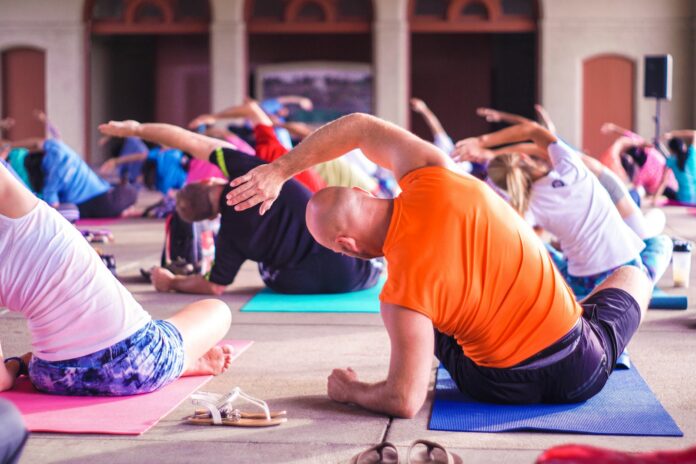Physical activity is not only beneficial for your body but also for your mind. Studies show that regular exercise enhances cognitive function, including concentration, memory, and focus. Whether it’s a short walk, a full workout, or even stretching, physical activity has profound effects on the brain’s ability to stay sharp and attentive.
This guide explores how physical activity improves concentration, backed by science, and how to incorporate it into your daily life.
1. The Science Behind Physical Activity and Concentration
A. Increased Blood Flow to the Brain
- Exercise boosts blood circulation, delivering oxygen and nutrients to the brain.
- Enhanced blood flow stimulates brain regions responsible for focus and problem-solving.
B. Neurogenesis
- Physical activity promotes the growth of new brain cells, particularly in the hippocampus, which is linked to memory and learning.
- It supports neural connections that improve information processing and retention.
C. Release of Brain Chemicals
- Exercise triggers the release of dopamine, serotonin, and norepinephrine, which enhance mood and attention.
- Increases in brain-derived neurotrophic factor (BDNF) help improve cognitive performance.
D. Stress Reduction
- Physical activity reduces cortisol levels, the hormone responsible for stress, which can otherwise impair focus and concentration.
2. How Physical Activity Boosts Focus
A. Improved Energy Levels
- Exercise combats fatigue, keeping the brain alert and engaged.
- Boosted energy levels help sustain concentration over longer periods.
B. Enhanced Memory
- Physical activity strengthens the brain’s ability to encode and retrieve information.
- Regular movement improves working memory, which is essential for maintaining focus on tasks.
C. Sharpened Cognitive Flexibility
- Exercise trains the brain to shift attention and adapt to new information more effectively.
- Activities like yoga and tai chi, which require focus and balance, are especially beneficial.
3. Types of Physical Activity for Better Concentration
A. Aerobic Exercise
- Activities like running, cycling, and swimming improve cardiovascular health and boost blood flow to the brain.
- Recommended Duration: 20–30 minutes, 3–5 times per week.
B. Resistance Training
- Weightlifting and resistance exercises improve attention span by stimulating brain activity.
- Enhances mental clarity through focused, repetitive movements.
C. Mind-Body Exercises
- Yoga, tai chi, and pilates combine movement with mindfulness, enhancing both physical and mental control.
- Focused breathing techniques in these exercises reduce stress and improve concentration.
D. Short Bursts of Activity
- Even 5–10 minutes of walking, stretching, or light activity can boost focus temporarily.
- Great for breaking up long periods of sitting.
4. Physical Activity and Age-Specific Concentration Benefits
A. Children and Adolescents
- Improves academic performance by enhancing focus, memory, and problem-solving skills.
- Activities like team sports and playground games also develop social skills.
B. Adults
- Helps sustain productivity at work by combating mental fatigue and improving decision-making.
- Activities like walking meetings or lunchtime workouts are highly effective.
C. Older Adults
- Protects against cognitive decline and improves concentration.
- Activities like dancing and brisk walking enhance memory and focus while promoting social interaction.
5. Incorporating Physical Activity for Better Focus
A. During the Day
- Morning Routine:
- Start your day with a brisk walk or yoga to awaken your brain.
- Midday Boost:
- Use a 10–15 minute workout during lunch to refresh your mind.
- Evening Relaxation:
- End the day with light stretching or tai chi to wind down and improve sleep.
B. At Work
- Desk Stretches:
- Perform simple stretches or desk yoga to combat fatigue.
- Walking Meetings:
- Discuss ideas or problems while walking with colleagues.
- Stand and Move:
- Take short breaks to stand, stretch, or do light movements every hour.
C. For Students
- Active Study Breaks:
- Alternate 25 minutes of study with 5 minutes of physical activity.
- Group Activities:
- Organize study groups with light physical activities like walking discussions.
6. Fitness Routines to Enhance Concentration
A. Quick Energizer (10 Minutes)
- 1-minute jumping jacks.
- 1-minute squats.
- 30 seconds of planking.
- Repeat twice.
B. Focus-Boosting Yoga Flow (15 Minutes)
- Child’s Pose (1 minute).
- Downward Dog (1 minute).
- Warrior II Pose (30 seconds per side).
- Seated Forward Bend (1 minute).
- Repeat for two rounds.
C. Aerobic Session (20 Minutes)
- Warm-up: Brisk walk (3 minutes).
- Jogging or cycling at a moderate pace (15 minutes).
- Cool-down: Stretching (2 minutes).
7. Long-Term Benefits of Physical Activity for Concentration
- Sustained Focus:
- Regular exercise improves long-term attention span and productivity.
- Better Learning:
- Enhances the brain’s ability to absorb and apply new information.
- Emotional Stability:
- Reduced stress levels promote mental clarity and resilience.
- Disease Prevention:
- Reduces the risk of cognitive disorders like Alzheimer’s and dementia.
8. Common Mistakes and How to Avoid Them
A. Inconsistent Routine
- Fix: Schedule regular workouts and treat them as non-negotiable appointments.
B. Overtraining
- Fix: Balance intensity with rest days to avoid mental and physical fatigue.
C. Neglecting Enjoyment
- Fix: Choose activities you enjoy to stay motivated and consistent.
Conclusion
Physical activity is a proven way to enhance concentration, focus, and overall cognitive performance. By incorporating regular movement into your routine, you can improve mental clarity, boost energy levels, and manage stress more effectively. Even short bursts of activity can make a significant difference in your ability to stay focused throughout the day.
Support your fitness journey with Myprotein products for optimal recovery and energy. For more lifestyle and fitness tips, visit Lifestyle Home and unlock your full mental and physical potential today!

